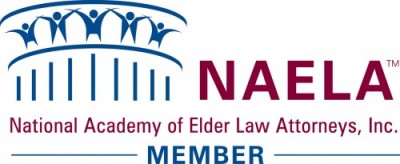 The U.S. Supreme Court has agreed to hear a case that could influence how millions of special needs children are educated under the federal law that requires public schools to provide children with disabilities a “free appropriate public education.”
The U.S. Supreme Court has agreed to hear a case that could influence how millions of special needs children are educated under the federal law that requires public schools to provide children with disabilities a “free appropriate public education.”
The law, the Individuals with Disabilities Education Act (IDEA), mandates that when a school district cannot provide a student with an appropriate education, it must reimburse the family for the costs of sending their child to a private institution that can. The problem is that parents, educators, and courts across the country have disagreed on exactly what constitutes an “appropriate” education for special needs students.
Schools attempt to provide an appropriate education through special education plans, called individualized education programs (IEPs), that address a student’s specific educational needs. Some federal courts have said that an appropriate education is provided by an IEP designed to give the student with a disability a minor educational benefit, while other courts have required that IEPs provide a substantial or “meaningful educational benefit.” This divide in the courts has resulted in widely different educational experiences for special needs students across the country.
In the case that the Supreme Court will hear, Endrew F. v. Douglas County School District, Endrew, a boy diagnosed with autism, attended public school through fourth grade and received an IEP for each year that he was there. By the time he was about to enter fifth grade, with worsening behavioral problems and a proposed IEP that was demonstrably ineffective, his parents placed him in a private school that specialized in educating children with autism. Their application for tuition reimbursement from the school district was denied and they appealed the decision. A federal appeals court agreed with the denial because Endrew had made some, or “just-above-trivial” academic progress.
Endrew’s parents argue that an IEP must be designed to confer a substantial educational benefit to a child with disabilities, a higher standard than that applied by the federal appeals court. The federal government joined in support of Endrew’s parents, arguing that the court’s decision is inconsistent with the purpose of the IDEA and deprives children with disabilities the benefits that they are granted by law. The school district disagrees, arguing that it need only provide a minimal educational benefit.
Since it was first enacted in 1975, IDEA’s vague language has resulted in unequal educational benefits at the local level and has left the quality of education that a special needs child receives dependent upon the school district in which she resides. With approximately 6.5 million IEPs created each year, many families such as Endrew’s face serious emotional and financial challenges in providing their children with an adequate education. Parents and educators are seeking a clear understanding of their rights and responsibilities under the law. The Supreme Court’s decision is expected to give them that clarity by defining the level of education that public schools must provide under the IDEA.
Endrew’s parents hope that the Court will require schools to apply a higher standard to meet the educational needs of their students with disabilities. “If we can change any families’ lives, that’s our goal,” said Endrew’s father. A decision is expected from the Court sometime in 2017.
To read the petition asking the Court to hear Endrew’s case, click here.
For an ABA Journal article on the Supreme Court’s acceptance of the case, click here.





